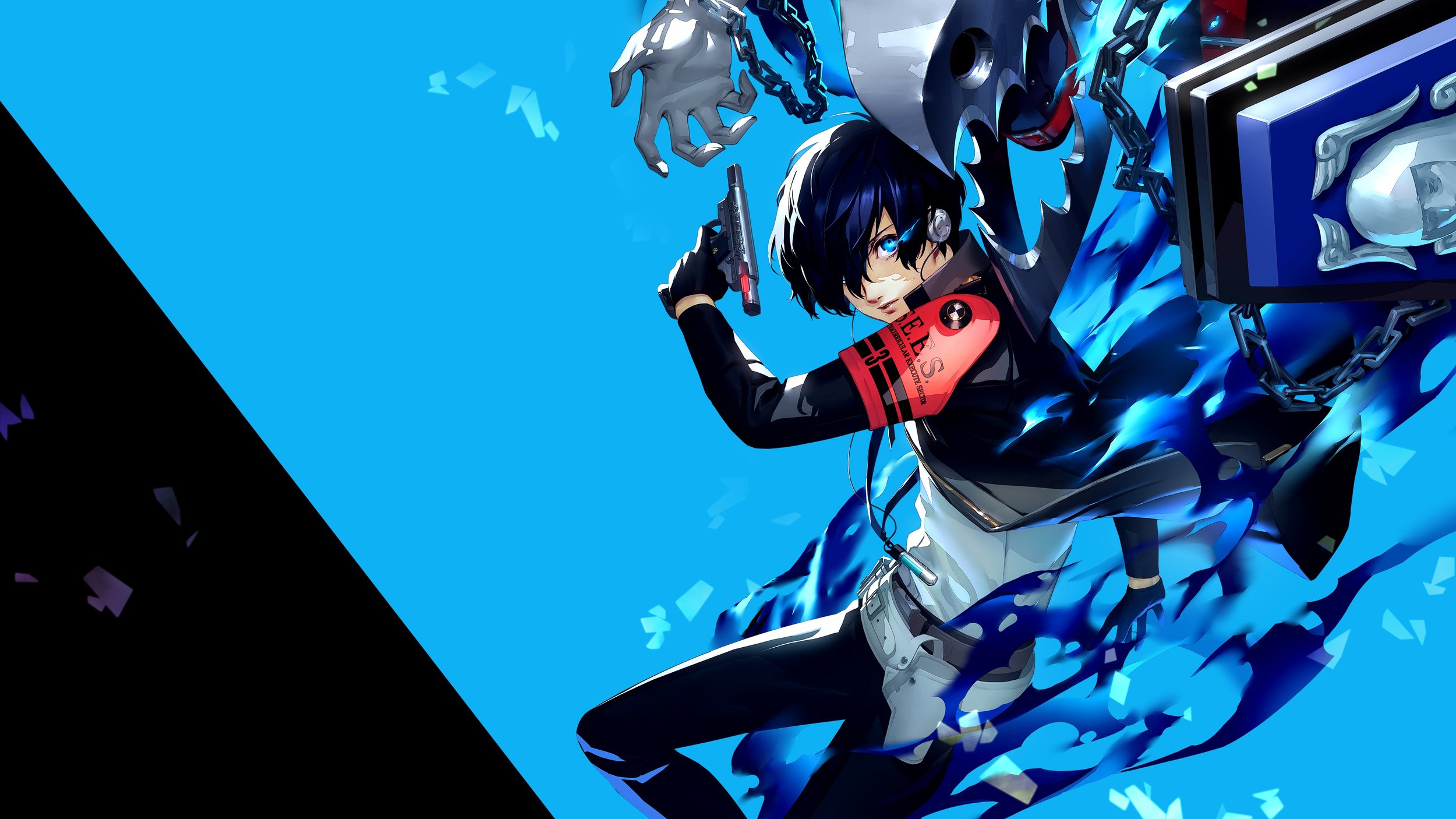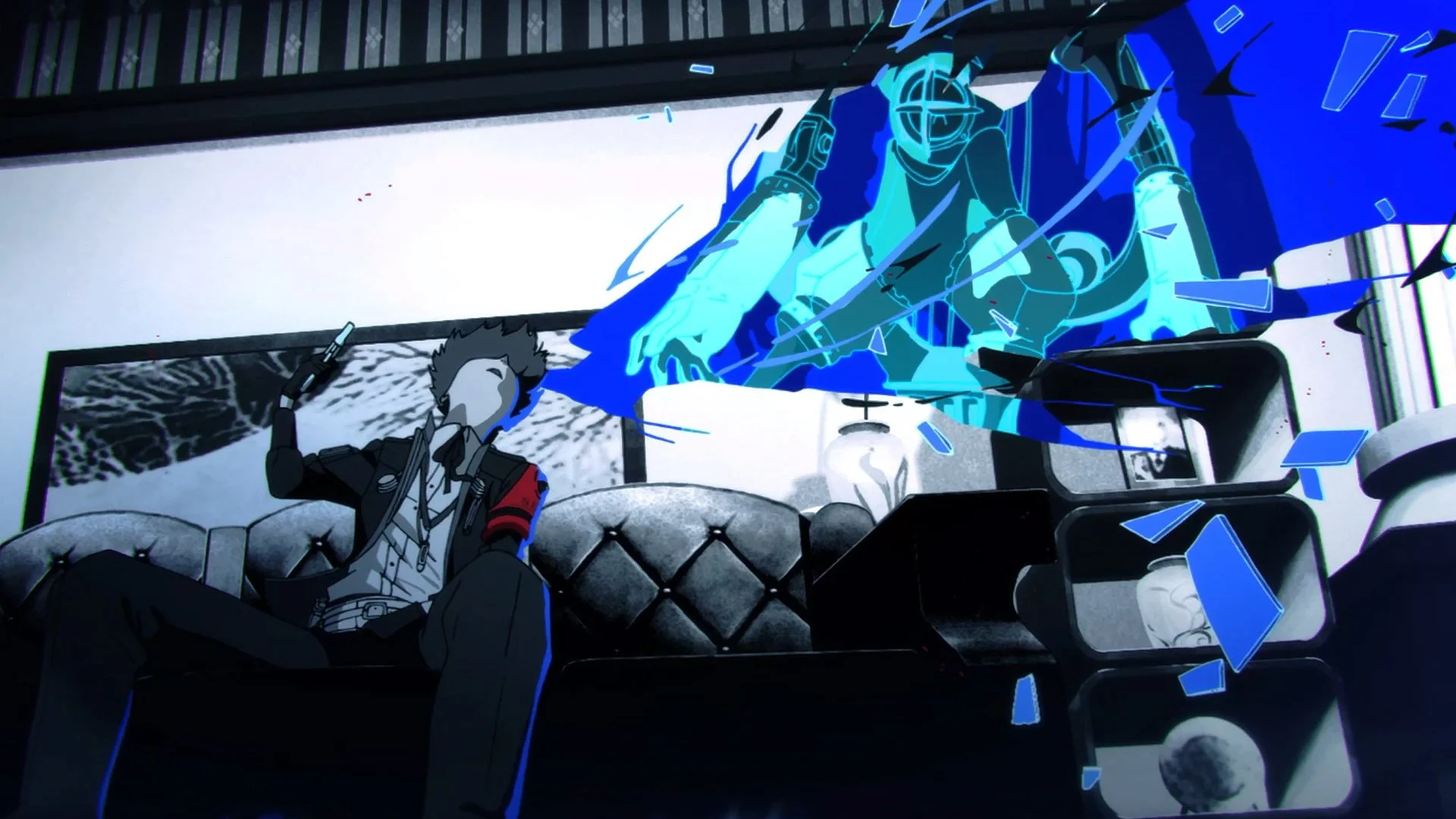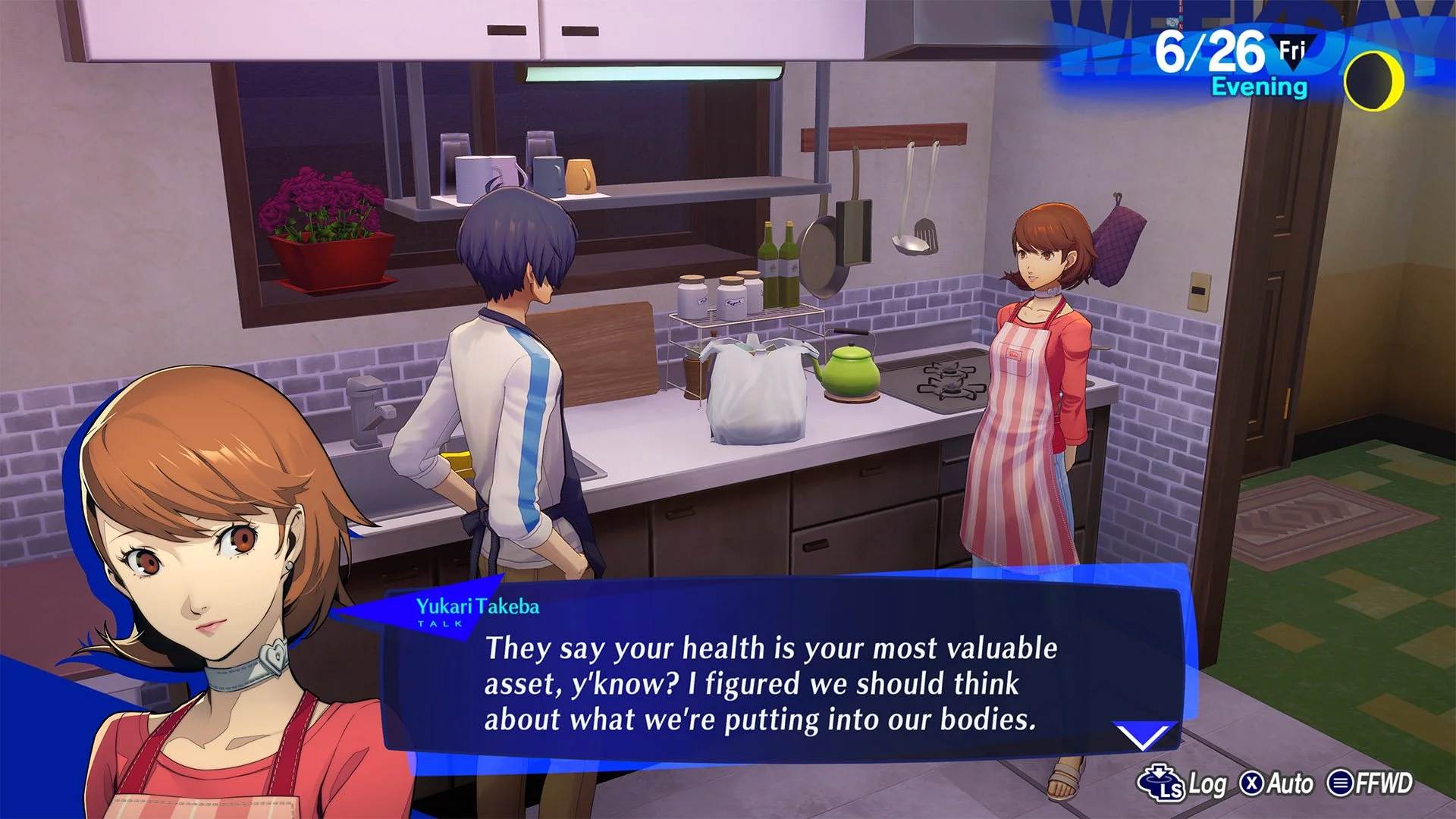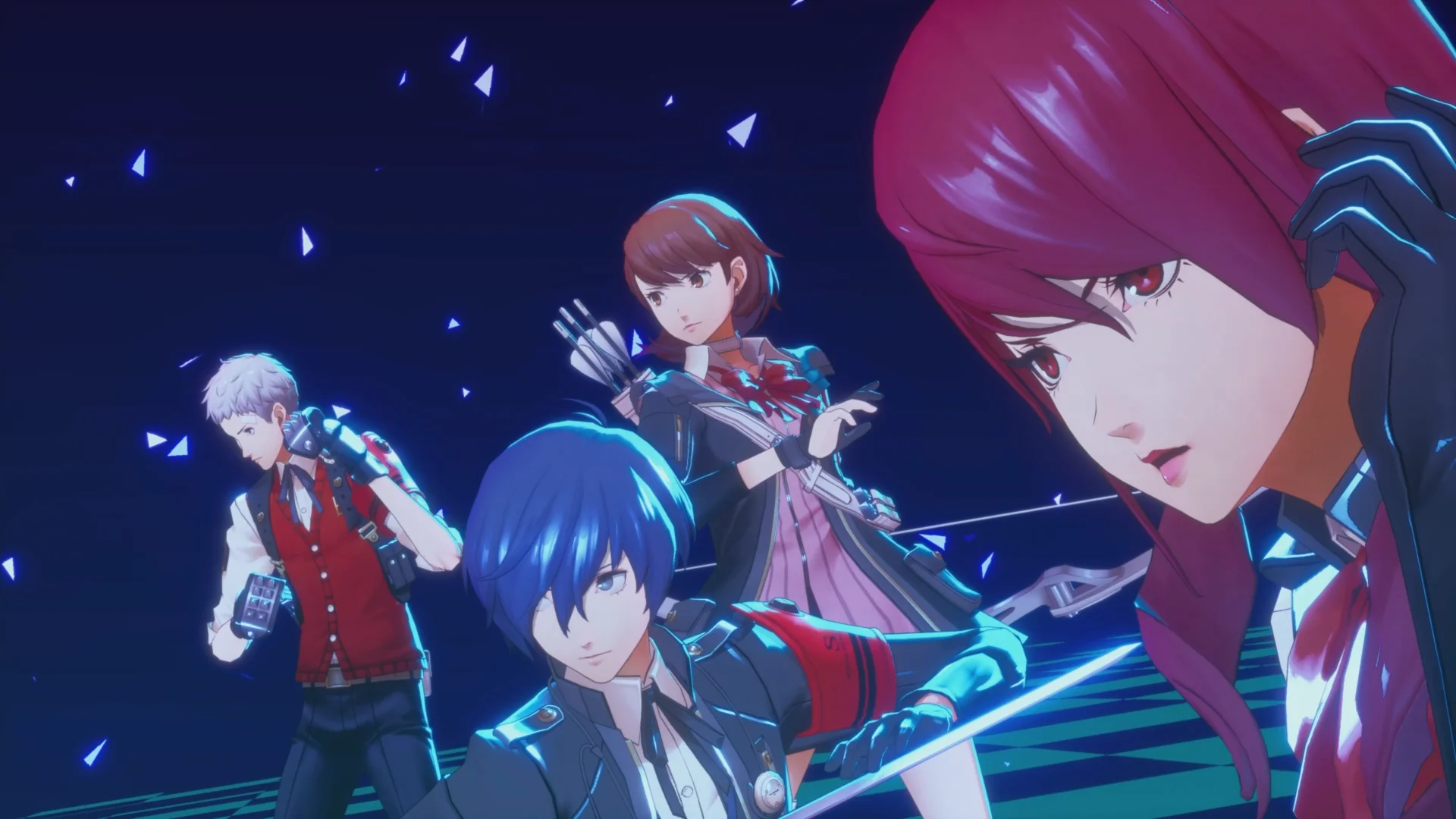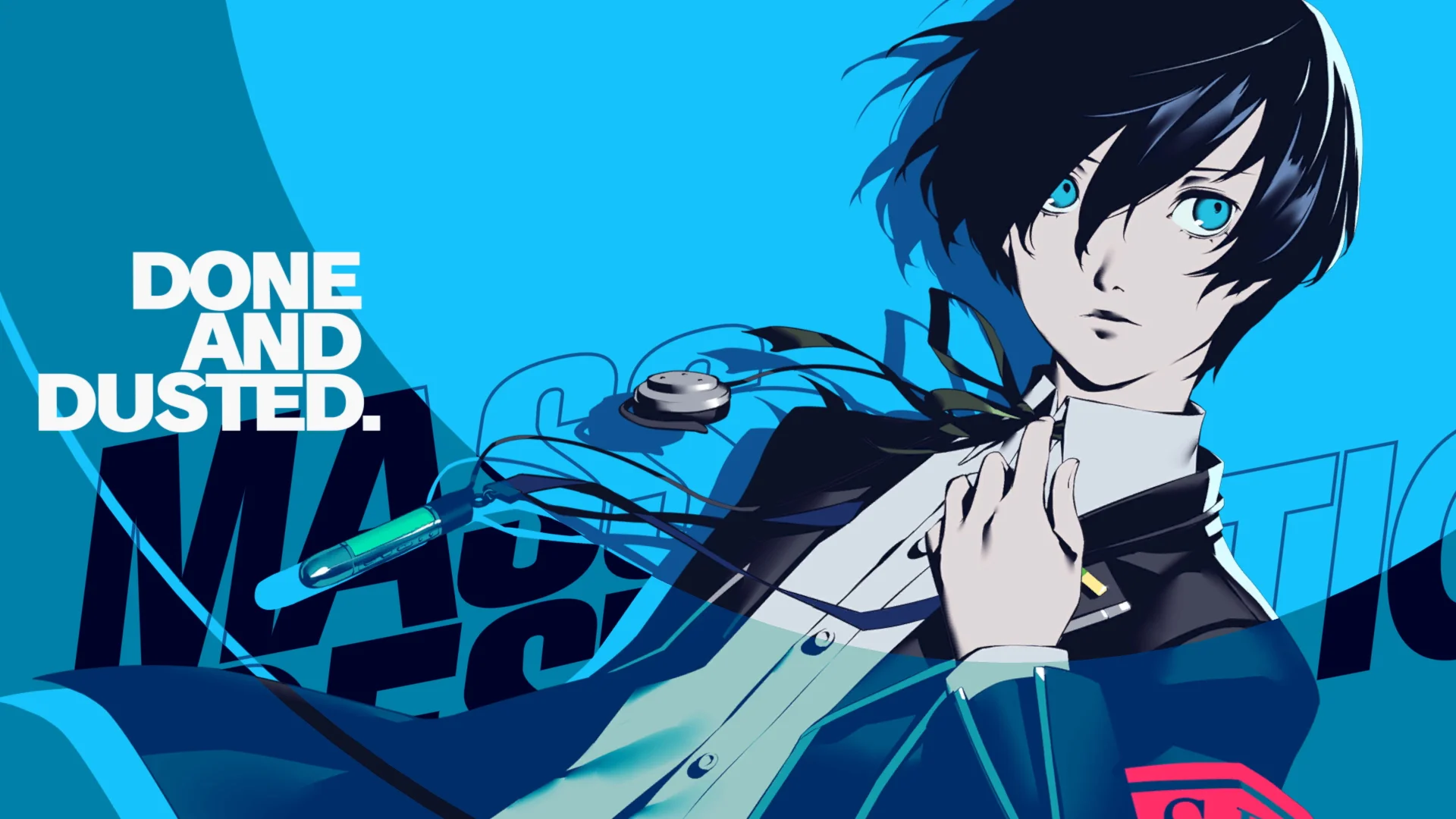Persona 3 Reload Review
“Another Wander in the Night” Written by: Ethan (@ChaoticAether)
It’s been almost five years since I first fell in love with the Persona franchise when I picked up Persona 5 in the middle of 2019, and it's fair to say that game changed my life. That’s mostly a story for another time, but I instantly fell in love with its endearing story, its sense of style and the way it managed to make me care about this ragtag group of Phantom Thieves. After playing Royal the following year, I dove into Persona 4 Golden on its PC release, and in 2022 I finally got around to playing Persona 3 FES on the PS2.
I’ll be honest and say it didn’t really click with me. I could tell its story was special, filled with a likeable cast and an overall gameplay loop I knew I would enjoy, but its age and lack of party control really held the game back in my eyes despite my best efforts to try and enjoy its systems. It was a game that I’m sure I would have loved if I had played it when I was younger, but for whatever reason I was dying for a remake so I could judge this game through a modern lens. Thankfully last year, my prayers were answered.
Eight months on from the announcement and Persona 3 Reload is finally here. A remake of the original Persona 3, Reload contains the entirety of the original 2006 game, the many additions found within FES’ the Journey, and somehow brand new additions to the combat and story to boot. With brand new voice actors, a series first with fully voiced social links and a plethora of gameplay adjustments, Persona 3 Reload is the definitive way to experience this all time classic. It’s a beautiful, faithful and modern retelling of one of the most influential JRPGs of the 2000s, but what makes this release so special? Well, where do I even begin?
Image Credit: Atlus, Sega
Persona 3 Reload takes place in 2009, where you as the protagonist arrive at Tatsumi Port Island as a new transfer student at Gekkoukan High. It’s the last train in, and an eerie green haze fills the streets as you head towards your temporary residence. After an encounter with an unusual boy and a student holstering a gun, you eventually learn that your student accommodation is home to a group known as SEES: the Specialised Extracurricular Execution Squad. From here you learn of the Dark Hour; a mysterious hour that occurs everyday after midnight, where monsters known as shadows roam and the average person rests inside a coffin. As you attempt to escape from a shadow with one of your roommates named Yukari, she falls to the ground. As a last attempt of survival you pick up her gun, point it towards your head and whisper one specific word: Per..so..na.
From here a rollercoaster ride of a journey occurs. You join SEES, learn the true meaning of your new power, and join your fellow teammates in exploring Tartarus: a vast labyrinth found during the Dark Hour thought to be the heart of the problem. Will SEES be successful in ending the Dark Hour? Will Tartarus really hold the keys to salvation? And why do they both even exist in the first place? The end is coming, and time is running out…
That’s all I’m going to tell you, the rest you’ll have to experience yourself. But man is it a story worth experiencing. It’s a slow burn at first, with it mainly starting out as a low stakes adventure, but once it picks up its one of the strongest stories in the Persona franchise. Through twists and turns you’ll go through a story all about the beauty of life and coming to terms with death. It’s one of the sadder stories the series has to offer, often portraying key story and character moments with a melancholy lens; but it's not scared to tackle these topics with an open mind. It’s this beauty that makes the story of Persona 3 so special, and with the stellar performances the cast provides, Reload cements itself as the best way to experience this incredible story.
The beauty of Persona is that it's as much about the side stories and interactions with companions as it is the main story, and of course this quality extends to all the available social links, which as mentioned prior are now completely voice acted from start to finish. They are all pretty great overall, but full voice performances have really allowed these characters to take on a world of their own. Yuko’s social link is a standout, with a charming personality I instantly grew to appreciate. Bebe, a foreign exchange student, shines with his French accent and intricate mannerisms. Tanaka and his shady personality are given ample time to play out. There are so many social links to choose from and despite some missing for me personally, they all are recorded well and have excellent voice portrayals that most fans are going to love.
This extends to the main cast, who also shine with the extra time given to them in social links. Thankfully romances this time are optional and social links can no longer be reversed, so you have ample opportunity to experience all of the main female social links this time around. As some of you may know male party members didn’t have social links in the original and spoiler alert: they still don’t here. However thanks to the inclusion of link episodes, each of the male cast members each get their own side story to experience and they are all fantastic. From smashing watermelons with Junpei to stopping bullies with Akihiko, they all add some needed time with the main cast and are all a joy to experience. Be sure to check your phone whenever you get the chance to, cause man are they worth seeing.
Image Credit: Atlus, Sega
This is how a majority of the social half of your gameplay journey will play out: go to school, hang out with social links, boost your stats, repeat. It's an addictive cycle, one that this game pioneered and is now considered a staple of the franchise. Not a single day feels wasted, as boosting stats to hang out with others leads to further story developments, new social links becoming available and boosted Persona fusions. The beauty of Persona is that in any other game this would be considered the filler, but for many it is THE reason to play these games. Hanging out, boosting stats, seeing what Tatsumi Port Island has to offer; it’s all just a blast to experience.
There are three social stats in Persona 3: courage, charm and knowledge, and these can all be boosted to level six in order to unlock new social links. That’s not to say these systems are perfect, as a lot of the refinements found in the latter games are absent here. Stat boosting definitely feels like a numbers game, with the knowledge stat especially feeling bloated in the amount of experience needed to progress it. There are new additions like additional places to eat and hangout events with your party members in the dorm that give you more accessible and in the latters case, entertaining ways to boost these stats. I do feel like the balance from Persona 4 and 5 still isn’t quite found here, as three stats really limits the fluidity in progressing through social links, but Atlus have done their best to make this process as entertaining as possible.
What isn’t as fluid is needing to max out each of the three social stats to unlock the three main female social links in the game. This leads to most of these interactions being left until the latter half of the adventure. The added social events and linked episodes certainly help to make this grind feel more natural, but if you’re gunning for a particular social link just be aware there may be a long road ahead of you. Despite the polish and added style to all these systems, you can still tell by the writing and pacing that this was their first attempt at these social systems.
As I mentioned earlier most of these social links are still great, but bar the main cast and a few odd standouts, most of these links are pretty shallow when it comes to story and character development. The removal of social link choices from the original game certainly doesn’t help, and that’s my main gripe with Persona 3 Reload. In the original, some social links like the sports and arts clubs allowed you to choose from a few options, but these are eliminated in Reload, leaving only the art club and track team remaining. This doesn’t impact the links in any meaningful way, but it does remove a little bit of choice from an otherwise faithful remake.
All this only encapsulates half of the journey though, as we have that giant elephant in the room Tartarus to explore. Most evenings in the game allow you to enter the Dark Hour and explore Tartarus as you see fit, a large labyrinth with hundreds of randomly generated floors for you to explore. If you’ve played Persona 5, think of it as a souped up version of Mementos and you’ll have the right idea. The premise is simple: every lunar cycle a block of Tartarus unlocks for you to explore, and it's your job to climb each floor, defeat each boss and reach a high enough level in preparation for a separate full moon boss at the end of the lunar cycle. Clearing each of the bosses available in Tartarus is usually a good gauge that you are levelled up enough for the next main boss, which occur as separate events outside of your regular excursions. It’s a solid feedback loop, and if you’re feeling lucky you could even leave Tartarus partially explored and focus on other tasks. Just be prepared to catch back up as you’ll eventually need to reach the top.
Tartarus has always been a bit of a rocky subject with the fanbase, but thankfully Reload has changed most of its systems to allow for a much smoother experience this time around. The first and most important change being that party status ailments and exhaustion have been removed, allowing you to explore its floors to your heart's content. As long as you have enough SP to keep going, party members won’t give up allowing for most blocks to be completed in just one attempt. Luckily there are plenty of SP items to find throughout your adventure, and the clock in Tartarus allows you to trade a new currency: Twilight Fragments, in exchange for recovering your HP and SP. You must be careful though, as Twilight Fragments can also be used to open valuable chests in Tartarus, so there’s a balancing act to be had. These systems on the whole work really well, and allow you to keep pushing as hard as you can so more time can be spent on stats and social links.
Atlus have also gone out of their way to increase the diversity found within Tartarus floors and blocks, making the whole process far less tedious. The first and most notable is the difference in the way Tartarus is generated this time around. Instead of floors changing each time you visit them, now each floor is generated at the start of every Dark Hour, allowing you to quickly travel between floors you’ve already explored if you ever need to grind. I personally loved this addition when it came time to grinding golden hands, and add to this each block having their own unique layout and design, and it really helped to keep the grind feeling fresh.
Image Credit: Atlus, Sega
There have also been a few added goals to increase variety, alongside the return of Elizabeth’s requests and missing person cases from the original games. These range in their impact, from smaller additions like dark floors and shadow ailments, to the larger additions like the Monad doors and passages. These act as additional tough boss fights, sometimes having multiple back to back, and award you with XP and additional loot. The final noteworthy addition I’ll mention is the great clock, which again relates to those pesky Twilight Fragments. After spending so many you have a chance of the great clock appearing, which when interacted with allows you to bring two party members up to the same level as the protagonist. As there is no EXP-share in Reload, this is a great way to level up underused characters and keep them as a viable option. All these small changes really freshen up Tartarus and make it far more entertaining to explore.
All of this is capped off by the excellent combat system you’ve come to know and love from Persona. Party control is back for the first time in a console version of Persona 3, and it works really well here. Baton Passes from Persona 5 are back here under the new name of Shifts, and dark and light moves now operate in a similar fashion to Persona 5, while also keeping in their instant kill variants.
New to the series are Theurgy moves, which act like a solo version of Showtime attacks. Each character has a unique method of increasing their Theurgy gauge, and once it is full allows them to perform either a devastating attack or support move. They are far more balanced than Showtimes, but still manage to retain the style.
Shuffle time from Persona 3 also returns, but with a couple of twists to make it feel more rewarding. Arcana cards are now shuffled in the deck which give you permanent boosts for your current run of Tartarus, which range from increased All Out Attack damage to increasing your EXP. Collect enough of them and you’ll even receive an Arcana Burst, increasing the level of all shuffle time cards until you leave Tartarus.
It all culminates in an experience that continues to prove why Atlus are masters of turn based combat. Not only are their systems engaging and a blast to play, but with flashy visuals and an impeccable sense of style, there is nothing quite like fighting in a Persona game.
This style continues with the visuals and UI elements that you’ve come to expect from a Persona title. Persona 3 Reload is a gorgeous game, with an art style that blends perfectly between its 2D anime cutscenes, rendered cutscenes and general gameplay. The world of Tatsumi Port Island has been beautifully recreated, and each of the portraits and character models look fantastic. This is all matched by the stunning new UI. I won’t get into why the theme of water works so well for Persona 3’s overall narrative, but the execution is stellar and they are honestly some of the best UI elements I have seen in a game. They are absolutely exquisite.
Performances are what you have come to expect from Persona at this point, that being some of the best in the genre. I personally believe all the new cast members do a wonderful job with the Roles they have been given. You can hardly tell that some characters like Junpei and Mitsuru have been recast, and others like Yukari and Akihiko, although different, excel in their roles. I’m honestly in love with this new cast and think they exceed their predecessors performances in almost every way.
The same can be said for the soundtrack, which has been completely remade for the new title. New songs like “Color Your Night” feel like long lost songs and are some of the best in the series history, and new takes on classics like “Want to be Close” and “Changing Seasons” are improved from the original thanks to the new performances. I loved everything about the new Persona 3 soundtrack, and it brings the whole package together in such a great way. It all comes together to create a stellar presentation that does justice to such a beloved title.
Image Credit: Atlus, Sega
Summary
Persona 3 Reload is an exceptional remake of one of the most influential JRPGs of all time. It manages to take everything beloved from the original game, rebuilds it with a fresh coat of paint, and simultaneously adds a plethora of new gameplay, visual and story elements that all managed to exceed my highest expectations. The music is stunning, its performances are stellar, yet despite all that it manages to keep its introspective story about life and coming to terms with death its crowning jewel. Persona 3 already told a truly special story back on the PlayStation 2, and now thanks to Reload there is no excuse not to experience it for yourself in this modern outing.
It may not be the “true” definitive version fans have been wanting for well over a decade, but despite its lack of FemC or The Answer (as of writing), it cannot be denied that Persona 3 Reload is the best way to experience Persona 3 in 2024. It is a must play for fans of the original, and an essential pick up for newer fans who found the series thanks to Persona 5 or Royal. Heck, if it's your first time playing a Persona game and you’re wondering if this is a good diving point for the series, you really can’t go wrong with Reload. There’s really no excuse to not pick this game up!
Reload constantly reminded me of why I fell in love with this franchise in the first place when I played Persona 5 nearly five years ago. It's an RPG franchise that manages to balance wonderful, endearing characters with heartfelt, personal stories that always manage to tug at my heart strings and change my perspective on life by the time they reach their conclusions. I’m happy to say that Reload happily sits alongside Royal as one of my favourite games of all time. I cannot wait to see what's in store for the series in the future, as from Persona 6 to the inevitable remake of Persona 4, there’s never been a better time to be a fan of modern Persona.

